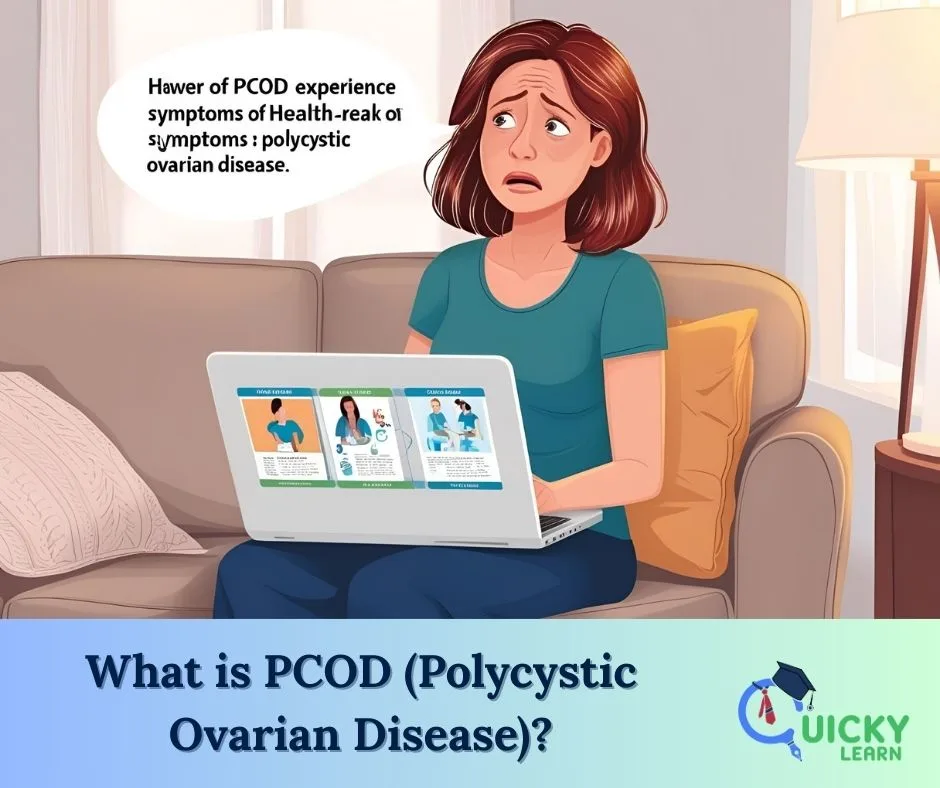What is PCOD (Polycystic Ovarian Disease)?
PCOD is a hormonal disorder that affects women of reproductive age. In this condition, the ovaries produce many immature or partially mature eggs, which eventually turn into small cysts. This disrupts the normal hormonal balance and leads to various symptoms.
Causes of PCOD
The exact cause isn’t fully understood, but it is linked to:
- Hormonal imbalance: Excess androgen (male hormone) levels
- Genetics: Family history of PCOD
- Insulin resistance: Can lead to increased insulin levels, triggering excess androgen production
Lifestyle factors: Poor diet, lack of exercise, stress, and being overweight can worsen symptoms
Symptoms of PCOD
Symptoms may vary from person to person, but commonly include:
- Irregular or missed periods
- Excess facial or body hair (hirsutism)
- Acne and oily skin
- Weight gain, especially around the belly
- Thinning hair or hair loss
- Difficulty in getting pregnant (infertility)
- Mood swings, anxiety, or depression
How is PCOD Diagnosed?
Doctors may use a combination of the following:
- Medical history and symptoms
- Ultrasound: To check for cysts in ovaries
- Blood tests: To check hormone levels and insulin resistance
Treatment Options
There is no permanent cure, but PCOD can be managed effectively with:
Lifestyle Changes (most important)
- Healthy diet (low sugar, low carbs, high fiber)
- Regular exercise
- Weight management
- Stress reduction
Medications
- Birth control pills to regulate periods and hormones
- Anti-androgen medications
- Fertility treatments (if trying to conceive)
- Insulin-sensitizing drugs like metformin
PCOD vs PCOS – Are They the Same?
- PCOD (Polycystic Ovarian Disease): Ovaries release immature eggs causing hormonal imbalance.
- PCOS (Polycystic Ovary Syndrome): A more severe form, affecting metabolism and often linked to more serious complications like diabetes, heart disease, etc.
PCOS is considered a syndrome with broader systemic effects, while PCOD is often limited to the ovaries.
When Should You See a Doctor?
If you have irregular periods, unwanted hair growth, weight gain, or are trying to conceive without success, it’s best to consult a gynecologist or endocrinologist.



